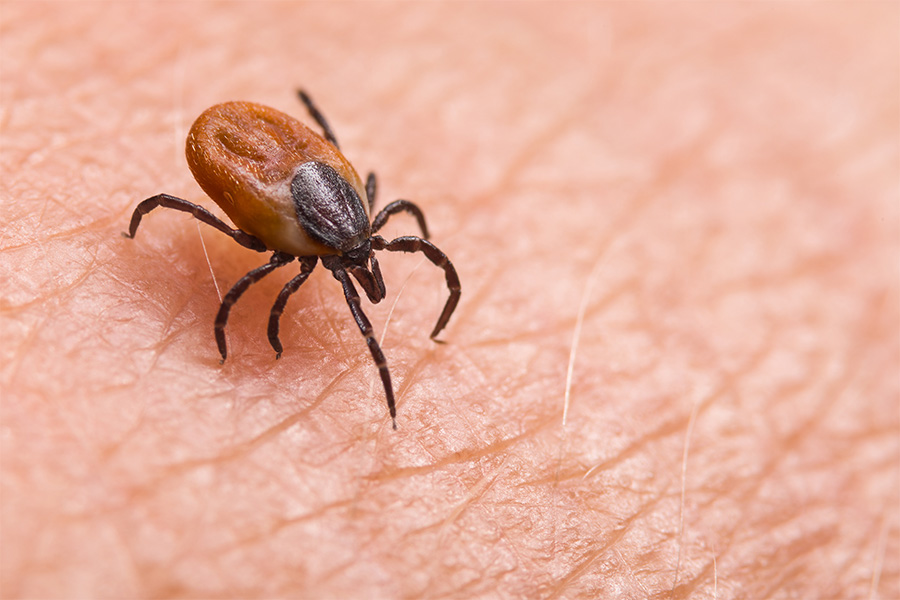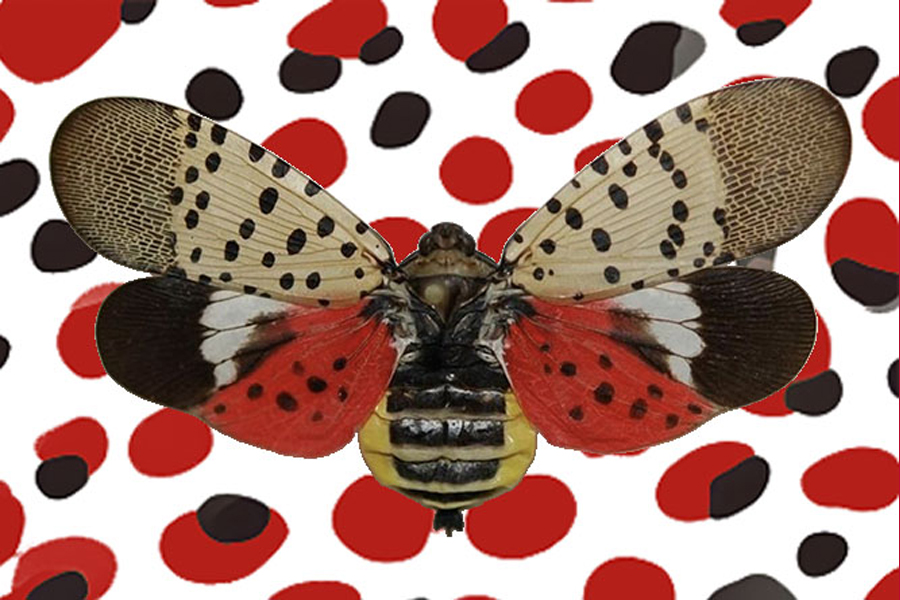Animal Diseases and Parasites
-

This publication discusses how to protect yourself and the areas around your home from ticks. It also includes information on common tick-borne diseases, such as Rocky Mountain Spotted Fever and Lyme disease.
Elmer Gray
|
-

C 915
Nitrate Toxicity
This resource summarizes the effect that high nitrates have on animals, presents the conditions to expect in toxic concentrations of nitrates, and outlines strategies that could prevent or reduce the risk of nitrate toxicity.
Dennis Hancock
|
-

This circular provides a basic summary of the best management practices of integrated mosquito management. These practices begin with education and communication and progress through surveillance, source reduction, larviciding, and adulticiding. The circular presents guidelines that communities can use to help develop the most effective mosquito management program possible with the resources available. Using these practices will help to minimize pesticide exposure to pollinators and other non-target pests.
Elmer Gray
|
-

This circular provides concise and accurate information describing mosquito biology and behavior. The publication describes the history of mosquitoes in Georgia and ways to prevent mosquito-borne diseases. Mosquitoes affect a large segment of the public, and mosquito control is most efficiently conducted in an integrated manner. This information will help homeowners address mosquito problems on their own property and provide insight into the intricacies of larger, community-based control programs.
Elmer Gray
|
-

In the Southeastern U.S., beef cattle producers focus on forage management and maximizing the grazing season. To that end, Southeastern cattle spend the vast majority of their lives either grazing or consuming stored forage. Cereal grains and coproduct feeds are also commonly used nutritional supplements for cattle in times of elevated nutrient requirement. Any disease or disorder in the beef herd represents a nutrient drain and subsequent economic inefficiency. Sudden shifts in dietary composition as well as mineral imbalances are the primary causes for most nutritional and metabolic disorders. This publication contains an overview of the common nutritional and metabolic disorders that may affect beef herds in the Southeast along with management strategies that can be used to minimize the effects of these disorders in beef cattle production systems.
Jacob R. Segers and Lawton Stewart
|
-

The implementation of horn fly control measures, such as aerosols, bait, strips, foggers, dust bags, traps, oilers, ear tags, pour-ons, natural predators, and insect growth regulators is instrumental in reducing the new infection rate, while existing mastitis cases can be eliminated with antibiotic therapy. Such management practices will promote animal health and well-being, enhancing producer profits by ensuring that heifers calve with low sec and the potential for maximum milk yield.
Steve Nickerson
|
-

Prevalence of mastitis in unbred, breeding-age and pregnant dairy heifers is higher than formerly realized. Infected
mammary quarters, especially those with Staph. aureus IMI, exhibit reduced mammary gland secretory
potential, marked leukocyte infiltration and the accompanying inflammation. Both nonlactating and lactating
commercial antibiotic infusion products have been used successfully to cure existing infections and reduce SCC,
and nonlactating therapy prevents new IMI with environmental streptococci. However, the goal is to prevent
new infections from occurring in these young dairy animals through management strategies aimed at vaccination,
use of teat seals, fly control and dietary supplementation. As global milk quality standards
become more stringent, management practices based on curing existing infections and preventing new IMI
in heifers will ensure that these young dairy animals enter the milking herd free of mastitis and with low SCC.
Such practices should be considered for incorporation into dairy herd health programs in herds suffering from a
high prevalence of heifer mastitis, especially mastitis caused by Staph. aureus. Not only do these practices reduce
new infections in first-calf heifers at parturition, they also reduce the introduction of Staph. aureus to the milking
herd.Steve Nickerson and Felicia Kautz
|
-

The spotted lanternfly is an invasive planthopper that can feed on a wide range of trees in the United States. The potential economic and environmental impact of spotted lanternflies is alarming, and threatens not only the livelihoods of many but also the biodiversity and beauty of our landscapes.
William G. Hudson and Shimat V. Joseph
|
-

Commercial insect and parasite control in animals. Updated annually.
Keith S Delaplane, Nancy C. Hinkle, Raymond Fitzpatrick, and Allison Faye Johnson
|